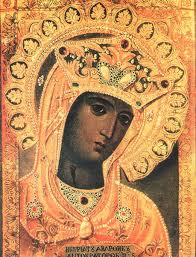The Rule of the twelve psalms -Worthy is the Lamb







The Rule of the Twelve Psalms - Worthy is the Lamb
Some editions of the Psalter and prayer books for priests contain an unusual order, not mentioned in the Typicon. You will not find it in the divine service, and the number of people practicing it in private prayer is probably also quite low. This article is about the “rule of the twelve psalms.” What is this order and where does it come from? Where was it originally practised and why is it important?
The Forgotten Daily Cycle
In modern practice, the rule of the 12 psalms is not part of the daily or any other cycles of worship; however, it is still used by Christians (particularly by monastics) with zealous attitude to prayer. Despite its current role as a private prayer rule, the primary purpose of this rite was part of the ancient liturgical cycle of psalms read during the 12 hours of the night.
This night cycle was included in the existing system of the daily circle, consisting of 24 services, one for every hour. We know very little about the worship of that time, except that it was quite different from the modern Rule, universally accepted by the Orthodox Church and based on the 7 hours (9 with the Midnight Office and the Typical Psalms) of the Palestinian Book of Hours. It is that completely different liturgical system that the rule of the 12 psalms originates from, which is why it is not present in modern worship.
The Egyptian Monastic Tradition
12 daytime and the same number of nighttime psalms are first described in the Codex Alexandrinus (Fol. 532v), an ancient manuscript of the 5th century, where 3 psalms for evening and morning services were indicated separately, giving, in fact, a brief outline of the services of one of the most ancient horologia. Chronologically, the next evidence of the Egyptian Book of Hours is a fragment of the late 6th century papyrus (P. Naqlun inv. 72/8), containing only the numbers of the daytime psalms, almost identical to those of the Alexandrian Codex. There is an assumption (Frøyshov. 2003. P. 555) that these Egyptian documents describe the liturgical circle of 24 services performed by Egyptian monks of the 4th century.
It is also known as “the Rule of St Pachomius, forwarded to him by a holy angel.” This Angelic Rule is mentioned in the famous work by Palladius of Galatia (Lavsaik, ch. 32), as well as in the writings of St John Cassian the Roman (De inst. Coenob. II 4-6; III 2). Each service consisted of a psalm and a prayer , reflecting the ancient norm to “seal” an Old Testament psalm with a New Testament prayer. In some manuscripts of the Psalter, one can find the daily service of the 24 psalms as an appendix to the kathisma (see: Diakovsky. 1913, p. 176), while in some other manuscripts it is incorporated into the daily cycle of worship (for example, in the 9t century Sinait Book of Hours (gr. 864) this rite comes immediately after the 9th hour.
Venerable John Cassian on the Night Reading of the 12 Psalms
According to the testimony of St John Cassian the Roman (+ 435), the 12 psalms are read during the evening and night Gatherings throughout Egypt and Thebais, with the addition of 2 readings from the Old and New Testaments. This rule was observed in all monasteries, since, according to the legend of the elders, it was not established by people, but revealed to the fathers by an angel (Scripture. Book II. On the rules of Night Prayer and Psalmody. Ch. 4). St John describes an incident when the Desert Fathers gathered together to decide how many psalms should be read in each monastery. The dispute became stalled, with some suggesting that 50 psalms should be read, some insisting on 60 and others giving their own reasons. It was time for the evening worship when one of the elders came into the middle and began to sing psalms. After reading the 12th psalm and Alleluia, he suddenly disappeared, thus putting an end to the dispute, for everyone understood that he was an angel (Ibid. Ch. 5).
The Structure of the Rule
What does the modern version of the Twelve Psalms Rule look like? The order begins with the usual priestly / laity exclamation, followed by the standard usual beginning after which the reading of the psalms begins. After each three psalms, the Trisagion through “Our Father…” and the repentant troparia to the Lord and the Theotokos are read, concluded by Lord have mercy read thirty times. Next comes “Come and let us bow down” (three times) and the following three psalms. The final reading consists of Psalm 102, the prayer of King Manasseh and the Great Doxology, after which the prayer of St Eustratius is read. The rule is concluded with the final Trisagion through “Our Father…”, the troparia, Lord have mercy (30 times) and the dismissal.
What is the significance of this rite in the life of modern Christians? First of all, reading it allows one to join the lex orandi (prayer law) of the ancient church, opening slightly the door to the cradle of Orthodox monasticism in Egypt and Thebais. Not every parishioner is able to privately perform Matins and Vespers, due to the complexity of their structure, as well as the mere lack of time and service books (the latter, however, are freely available on the Internet). The daily reading of the same morning and evening prayers is prone to turning into a mere formality, while the rite of the 12 psalms is more diverse and saturated not only with biblical text, but also with beautiful hymnography. Also, according to the Old Russian tradition, the reading of this rite can replace Vespers and Matins for a layman unable to attend a church service.
Reference: Posted on |
Religion in Africa Before Christianity and Islam









Religion in Africa Before Christianity and Islam

Religion in Africa Before Christianity and Islam,Africans created spiritual systems that permeated every aspect of daily life for thousands of years. Rather than being recorded in books, these belief systems were transmitted through songs, dances, rituals, and stories.They drew from a profound knowledge of the spirit world, community, and nature. Before the arrival of Christianity and Islam, Africans embraced diverse spiritual practices that celebrated life, honor, and the power of the unseen.
In this article, we will explore:
- The Foundations of Traditional African Beliefs: How African spirituality began and the core ideas that shaped these belief systems.
- Core Concepts and Rituals in Traditional African Spirituality: An in-depth look at important elements, including the roles of nature, ancestors, and gods, as well as common rituals and ceremonies.
- The Enduring Legacy and Impact of Traditional African Beliefs: How these beliefs continue to influence African cultures, practices, and identities today.
Understanding these spiritual traditions helps us appreciate the diversity and richness of African heritage while recognizing how these systems once guided communities long before new religions arrived.
Section 1: The Foundations of Traditional African Beliefs: Religion in Africa Before Christianity and Islam
A Deep Connection to Nature and the World
Long before the spread of Christianity and Islam, African societies organized their view of the world around the natural environment. People believed that the Earth, sky, rivers, mountains, and forests were alive with the presence of spirits and deities. This respect for nature was not simply about appreciating the beauty of the world—it was about living in balance with it.
- The Living Earth: Many African communities saw the land as a living being. The earth was revered as a nurturing force that provided food, shelter, and life. This belief fostered sustainable practices, as people understood that treating the land with respect meant it would continue to support future generations.
- Elements of Creation: For many Africans, natural elements like water, air, fire, and earth were not separate from the divine. They were expressions of life itself. The wind might be seen as the breath of a deity, while water could be a symbol of life and fertility.
- Animals as Spiritual Messengers: Animals often played symbolic roles in many African belief systems. Some species were considered sacred, believed to carry messages from the spiritual realm. The lion could represent strength and leadership; the crocodile, mystery and power; and the bird, an airborne messenger connecting the human world with the heavens.
The Role of the Supreme Being and Lesser Spirits
In almost all traditional African belief systems there is the idea of a Supreme Being—a creator who set the world in motion. However, this Supreme Being is usually seen as distant, leading to a rich pantheon of deities and spirits who interact directly with human life.
- The Supreme Creator: Many African cultures believe in one great creator who is often seen as the ultimate source of all life. This creator is usually distant in day-to-day affairs and is considered the architect of the universe. Despite this distance, the creator’s influence is evident in every aspect of nature and life.
- Lesser Gods and Deities: Surrounding the Supreme Being are many lesser gods and goddesses who represent various aspects of nature and human experience. These deities might oversee agriculture, water, fertility, or healing. In the Yoruba tradition of West Africa, for example, the Orishas—powerful deities like Oshun (goddess of fertility and rivers) and Shango (god of thunder)—play vital roles in everyday life.
- Spirits and Ancestors: Another essential part of the belief system is the role of the ancestors and other spirits. Ancestors are revered as guides and protectors. It is believed that the spirits of those who have passed on remain close to the living, offering wisdom and support when honored through ritual and remembrance.
Oral Tradition and the Transmission of Belief
Without written texts, traditional African beliefs were passed down through generations by word of mouth. This oral tradition was rich and varied, ensuring that spiritual knowledge remained vibrant and adaptable to changing times.
- Myths and Legends: Stories about creation, heroic ancestors, and the origin of natural phenomena were told and retold. These myths often carried important lessons about how to live, how to treat the land, and how to interact with the spirit world.
- Songs and Chants: Music and song were powerful tools for preserving tradition. Drumming and chanting connected people during rituals, helping to summon spirits, celebrate harvests, or mourn loss.
- Dances and Rituals: Dance was not merely entertainment—it was a form of prayer and a way to connect with the divine. Rituals involving dance, music, and symbolic movement allowed communities to engage actively with the spiritual world.
- Role of Elders and Spiritual Leaders: Griots, diviners, and spiritual healers held a place of honor as keepers of tradition. They ensured that important knowledge was transmitted accurately and maintained the continuity of the culture.
These methods of transmission meant that African spirituality was deeply rooted in the communal life of the people. Beliefs were dynamic and could adapt to new challenges without losing their core message.
Section 2: Core Concepts and Rituals in Traditional African Spirituality
The Concept of Harmony and Balance
At the heart of many traditional African belief systems is the idea that life is about balance and harmony. Everything in the universe is interlinked, and when one part is disturbed, it affects the whole.
- Cosmic Balance: African spirituality teaches that the universe is a delicate balance of forces. If one aspect of life—like agriculture, family, or weather—falls out of balance, spiritual remedies are needed to restore harmony. This idea is reflected in the careful ceremonies intended to appease angry spirits or rectify wrongdoings.
- Social Harmony: The community and family are seen as extensions of the natural order. Conflicts, therefore, are not just personal matters but are seen as disruptions of the cosmic balance. Traditional dispute resolution often involves spiritual practices aimed at restoring peace.
- Health and Well-Being: Illness, in many traditional African beliefs, is not just a physical condition. It is often viewed as a sign of spiritual imbalance. Healing practices, therefore, include not only herbal remedies and physical treatments but also rituals designed to cleanse the spirit and restore the patient’s connection with the natural world.
Rituals and Ceremonies: Celebrating and Healing
Rituals are a cornerstone of African spirituality. They serve multiple purposes, from celebrating life’s milestones to healing both the body and the community.
- Rites of Passage: Ceremonies marking the passage from childhood to adulthood, marriage, and even death are deeply spiritual events. These rites of passage are opportunities to honor ancestors, seek blessings, and mark the cyclical nature of life.
- Harvest Festivals: Agriculture is central to many African societies. Harvest festivals celebrate the bounty of the land. These gatherings involve prayers, dances, and feasts where people offer thanks to nature spirits and deities, ensuring that the land remains fertile.
- Healing Rituals: Traditional healers perform rituals to diagnose and treat illnesses. These ceremonies may include chanting, dancing, and the use of symbolic objects to invite healing forces into the patient’s life. In many cultures, a healer (often known as a diviner or herbalist) is thought to communicate with the spirit world to identify the cause of sickness.
- Ancestral Worship: The ancestors play a critical role in everyday spiritual life. Rituals to honor them can include offerings of food and drink, special prayers, and remembrance ceremonies held at family shrines. These acts are meant to ensure that the ancestors continue to look after their living descendants.
- Sacred Spaces: Many African communities have sacred places—groves, mountains, and rivers—where the veil between the physical and spiritual worlds is thin. These locations are ideal for pilgrimage, meditation, and conducting important ceremonies. Such spaces are treated with great reverence, and it is common for people to leave offerings for the spirits that dwell there.
Symbols and Art in African Spirituality
African spirituality is rich in symbols that carry deep meanings and connect believers to their traditions and the divine.
- Masks and Sculptures: Masks and statues are not just art; they are vehicles for the spirit. During ceremonies, masks may be worn to represent deities, ancestors, or protective forces. These objects are created with intricate detail and are believed to hold powerful energy.
- Color and Cloth: Colors often have specific meanings in traditional African cultures. For example, white might represent purity and new beginnings, while red could stand for life, strength, or sometimes danger. Clothing and fabrics are used ceremonially to reflect these ideas.
- Oral and Visual Storytelling: Alongside the spoken word, visual art such as rock paintings, beadwork, and pottery tell stories of creation, heroism, and the moral lessons of the culture. These items are both decorative and deeply symbolic, carrying forward the messages of the ancestors.
- Religion in Africa Before Christianity and Islam
Reference: www.afriklens.com
6 The Origin of Yahweh









6 The Origin of Yahweh
Dumo Di Milano
Dumo Di Milano - The Cathedral
Work for the construction of Milan cathedral began in 1386 when the style of Gothic cathedrals had reached its peak. It was decided that the new church should be built in the area of the ancient basilicas of Santa Maria Maggiore and Santa Tecla, the remains of which, together with those of the Baptistery of San Giovanni alle Fonti, are still visible in the Archaeological Area.
For this purpose, in October 1387 the Veneranda Fabbrica del Duomo was founded at the instigation of Gian Galeazzo Visconti, Lord of Milan, with the aim of continuing with the design and construction of the church. Gian Galeazzo’s decision to use Candoglia marble instead of the traditional Lombard brick was accompanied by a real revolution in style through the choice of Gothic, which forced the Fabbrica to look for engineers, architects, sculptors and stone-cutters from all around Europe. The construction site became a lively space for the exchange of the most diverse ideas, experiences and skills from workers coming from all over the continent, which made the Duomo a crossroads of peoples and cultures and the most European among Gothic cathedrals.
The long succession of architects and engineers at the head of this innovative and original construction site makes it impossible to trace a certain authorship of the project.
Construction began from the apse, with its awe-inspiring and imposing stained-glass windows, and continued towards the transept and the first spans of the naves, leaving the age-old problem of closing the vault unresolved.
On 16 October 1418 Pope Martin V, who was returning from the Council of Constance, consecrated the church’s high altar.
At the end of the fifteenth century the greatest architects and artists of the time, including Leonardo da Vinci, tried to accomplish the difficult task of designing the tiburium. Once this phase was concluded and a unanimous decision was reached, construction work continued and a new phase started under the inspiration of the pastoral work of Carlo Borromeo.
The Council of Trent’s decrees (1545-1563) started the Counter-Reformation (more precisely, the Catholic Reformation) in opposition to the Protestant one. Carlo Borromeo, archbishop of Milan from 1564 to 1584 and Federigo Borromeo’s (archbishop from 1595 to 1631) interventions in the cathedral were inspired by the concepts and forms of the architecture and ecclesiastical furnishings of papal Rome, leaving a new imprint in the Duomo’s interior, as we can see from the magnificent architectural framework of the presbytery, the side altars, the crypt, the baptistery, the floor. The Quadroni di San Carlo and the wooden choir are among the most interesting examples testifying to the creativity of this prolific historical phase.
The design of the church’s façade began at the end of the sixteenth century, when the foundations for its prospetto (front) were laid, meanwhile the ancient façade of the church of Santa Maria Maggiore (which was demolished in 1683) had been rebuilt forward of its original position. As was the case for many other architectural elements of the cathedral, the façade too had to wait for long (until the end of the eighteenth century) before a definitive plan was completed.
Between the seventeenth and eighteenth century the tiburium was completed with the great spire on top and the laying of the statue of the Madonnina (1774).
The nineteenth century saw great activity on the construction site. On the eve of Napoleon’s coronation as King of Italy and on his initiative, new works were undertaken to complete the façade (1807-1813). The construction and decoration works continued, most of the spires were placed on the roof and several stained glass windows with enamel-painted glass were also completed.
The twentieth century, which was marked by war and conflict, saw the start of major renovation works, the first archaeological excavations in Piazza del Duomo and the completion of the façade with the addition of the doors, which date back to a relatively recent period, between 1909 and 1965.
In the second half of the 20th century, the Fabbrica undertook the complete, structural and conservative restoration of some complex parts of the Duomo. The sixties and seventies saw the Veneranda Fabbrica engaged in works on the façade, with the second restoration carried out on the spire after another one that had been carried out in 1840.
Inside the cathedral, the complex static restoration of the tiburium pillars was certainly one of the most complex interventions, while at the end of the century the apse and the façade were restored. Later, the Great Spire was restored for the third time. In 2016, the exciting challenge of restoring the tiburium and the dome began.
Reference:Dumo Di Milano
Articles-Latest
- Koran burning conviction sparks fury as blasphemy law 'returns to UK'
- Robert Francis Prevost - Pope Leo XIV
- Pope Francis' death follows recent health challenges. Here's what we know about how he died.
- Easter April 2025 - international Celebrations
- The Rule of the twelve psalms -Worthy is the Lamb
- Religion in Africa Before Christianity and Islam
- 6 The Origin of Yahweh
- Dumo Di Milano
- What Did the Crow Tribe Believe In: Discover The Beliefs!
- 7 Reasons Historic Christianity Rejects the Book of Enoch
- 8 Breathtaking Mountain Monasteries Around the World
- Ethiopian Bible is oldest and most complete on earth
- Muhammad Muhammad was a prophet and founder of Islam.
- World Day of the Poor – SVP Christmas Campaign 2024
- Pope Francis to open 5 sacred portals on Christmas Eve — for a ritual that’s never been done before
- The 144,000 in Revelation
- Over 73 dead bodies 'used for meditation', 600 crocs in a pond, found in two Thai temples
- Occultism: Western Occult Tradition
- What is a Mudra
- Blood Sacrifices: Ancient Rituals of Life and Death
Articles-Most Read
- Home
- Let There Be Light
- Plants that feel and Speak
- The Singing Forest
- The Singing Forest-2
- Introduction
- Meditation
- Using Essential Oils for Spiritual Connection
- Heaven Scent
- Plants that Feel and Speak-2
- Purification
- Making the Spiritual Connection
- Anointing
- Essential Oils: The unseen Energies
- The Sanctity of Plants
- The Aroma Of Worship - Introduction
- The Aroma Of Worship-Foreward
- Methods Of Use
- Spiritual Blending
- Handling and Storage







